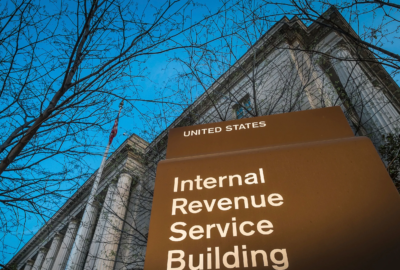
Shutdown couldn’t have come at ‘worse time’ for IRS
The past few months have been particularly challenging for the IRS, with budget ups and downs, a long government shutdown and a complex new tax code.
Best listening experience is on Chrome, Firefox or Safari. Subscribe to Federal Drive’s daily audio interviews on Apple Podcasts or PodcastOne.
During the record 35-day partial government shutdown last month, the IRS recalled nearly 46,000 employees to handle tax returns and pay out refunds. Not among them was the Taxpayer Advocate Office, which is responsible for handling individual taxpayer problems and recommending bigger changes to the agency to prevent future issues.
According to National Taxpayer Advocate Nina Olson, those five weeks of missed work “could not have come at a worse time.” She made this sentiment in the National Taxpayer Advocate Annual Report to Congress 2018.
Implementing reforms from the new Tax Cuts and Jobs Act, IT infrastructure issues and a backlog of calls and messages from unresolved prior year audits or identity theft cases have all intersected, she said on Federal Drive with Tom Temin.
“You know, my office addresses taxpayers who are experiencing significant hardship as a result of what the IRS is doing or not doing,” Olson said. “We were allowed to come in, open the mail, take out the checks that people had sent in, but not be able to address any of the problems that taxpayers had. And that was both very demoralizing and really troubling, in that the IRS could continue to take collection action because that’s protecting government property, and yet none of the rights that Congress has passed to protect taxpayers in the context of collection action were able to be enforced.”
By the time the shutdown began, the IRS had a large inventory of work including implementing the new tax law, which redesigns the 1040 form. The agency was also behind schedule releasing legitimate refunds and on conducting audits, particularly for low income taxpayers, Olson said.
“Those three to four weeks over December and January before the filing season begins is key for the IRS,” she said. “It’s when it really trains its employees … on the filing season.”
She also said the agency typically uses that time to make sure no audits from the previous year are left, otherwise it likely means the current year’s returns will be frozen as well, causing a snowball effect. After the shutdown, returning employees found 5 million pieces of mail, 80,000 responses to last year’s earned income credit audits that hadn’t been addressed, and 87,000 amended returns that needed to be addressed.
In addition, the IRS’ National Distribution Center, which sends out paper forms, had 170,000 orders for W2 forms. Even with employees working overtime and processing 11,000 orders a day, the agency said it would not be able to complete all orders by the Jan. 31 deadline. As a result, Olson said, the IRS advised employers to file extensions.
Related Stories

Watchdog finds IRS ‘underfunded, understaffed and at the mercy of shutdowns’
“And all of those are things that require a human being to look at,” she said. “So you’re going to move somebody that’s doing one form of work to look at another form of work and, you know, you just can’t keep moving things around without major impact to the system.”
From the outside, taxpayers are having a harder time getting their calls to the IRS answered by a live person; the rate went from nearly 75 percent of calls prior to the shutdown to less than half after the shutdown, she said. In addition, the phone line to receive calls from people who received letters notifying them of money owed to the IRS had wait times of an average 80 minutes, with only 7 percent of calls getting through. She said this was due to 2,000 furloughed employees undergoing delayed training who would have otherwise been answering calls.
“I’ve never seen a level of lack of surface like that,” Olson said. “All of that erodes, you know, confidence in the IRS. It erodes compliance, it creates frustration and it can create harm for the taxpayer because their bank accounts maybe garnished.”
Thankfully, Olson said, the hold music was changed last year from the Nutcracker Suite.
Copyright © 2025 Federal News Network. All rights reserved. This website is not intended for users located within the European Economic Area.
Amelia Brust is a digital editor at Federal News Network.
Follow @abrustWFED



